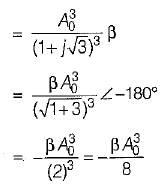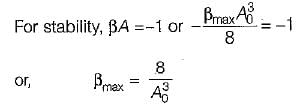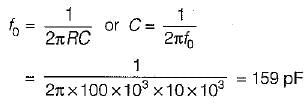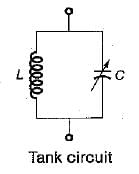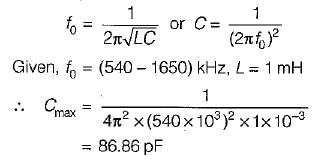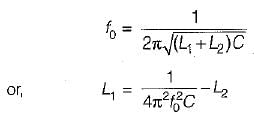Test: Signal Generators & Waveform Shaping Circuit - Electronics and Communication Engineering (ECE) MCQ
10 Questions MCQ Test - Test: Signal Generators & Waveform Shaping Circuit
Hysteresis is desirable in Schmitt-trigger because
Assertion (A): All oscillators require positive feedback for their operation.
Reason (R): Any circuit which is used to generate a periodic voltage without an a.c. input signal is called an oscillator.
Reason (R): Any circuit which is used to generate a periodic voltage without an a.c. input signal is called an oscillator.
Each stage of a three stage amplifier without feedback has identical pole frequencies and its open loop transfer function is expressed as:

What is the maximum value of feedback factor βmax for which the amplifier remains stable?

Assertion (A): In a crystal oscillator, it is necessary to enclose the crystal in a temperature controlled oven to achieve the frequency stability of the order of 1 partin 1010.
Reason (R): A crystal has very high Q as a resonant circuit, which results in good frequency stability for the oscillator.
Assertion (A): If the magnitude of loop gain of the amplifier is unity then the amplifier gives an a.c. output without any a.c. input signal.
Reason (R): The property of the regenerative feedback is utilised in oscillators.
In a Wien-bridge oscillator, if the value of R is 100 kΩ, and frequency of oscillation is 10 kHz, then the value of capacitance C would be
A 555 time basically operates in
For an RC phase-shift oscillator using BJT, R = 10 kΩ, C = 0.01 μ.F and Rc = 2.2 kΩ The minimum current gain needed for sustained oscillations is around
A tank circuit contains an inductance of 1 mH. What is the range of tuning capacitor value if the resonant frequency ranges from (540-1650) kHz?
ln the Hartley oscillator, L2 = 0.4 mH and C - 0.004 μF. If the frequency of the oscillator is 120 kHz, then the value of L1 would be (neglect the mutual inductance)



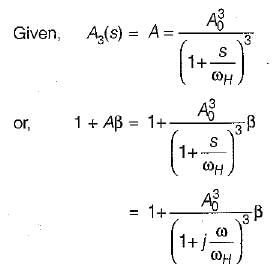
 becomes 1800 . The required phase change in one stage i.e
becomes 1800 . The required phase change in one stage i.e  should be 600
should be 600  or,
or, 
